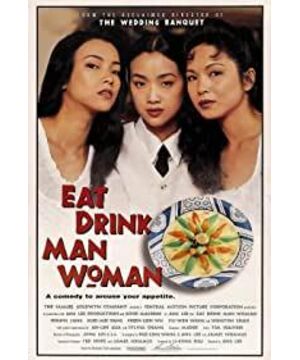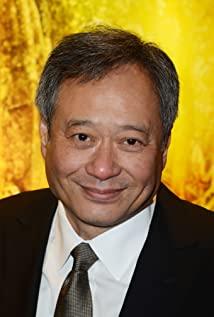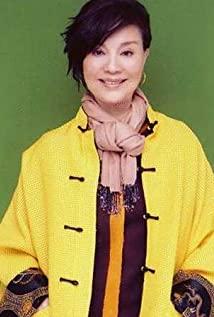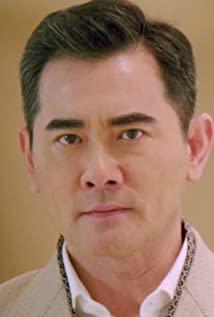Fortunately, God Bless Lao Zhu finally succeeded. No matter whether it was Jia Ning (the third child) unintentionally trying to win love, or Jia Zhen (the elder one) who made a mistake and pulled it hard, anyway, the people who should go and those who shouldn't have been taken away by other men, the only one left is to practice the so-called modern Jia Qian, who is romantic, went around and tasted the bitterness of life, and finally she could fly to Amsterdam to do her business with peace of mind; when Jin Rong's divorce certificate was framed and hung on the bathroom wall by her mother, Master Zhu is facing the last bunker - his future mother-in-law. The strategy of the decisive battle is simple and clear: a large feast, raw rice cooked rice, even if you foam at the mouth, you have to accept the reality that is enough to lose your front teeth, and you will be forced to act as a grandmother again after a few months.
Fate will always favor those who work silently, at least those who work silently must think so.
This film is the third part of Ang Lee's "Father Trilogy". There are thunderstorms near the end of "Pushing Hands", but the overall atmosphere is dull, and the theme is even more sad; "The Wedding Banquet" rebels against tradition with the love of broken sleeves, which is not a coincidence in the context of the time, and the father and son are engaged in a big fight In the end, it can't be regarded as the virtue of family films. "Food Men and Women" found a more ideal fit: first, it has the typical selling point of oriental culture in the eyes of Westerners. The most obvious manifestations of the common laughs in the society are Aunt Liang (Gu Yalei's Hunan accent, which is rare), who is open-mouthed and has no wealth, and Yang Guimei's interpretation of the exaggerated older woman who hates to marry a leftover girl, and The amazing volleyball love letter MotoGP between her and the sports guy; and of course the unexpected twist at the end. On other people, these elements are enough to support a movie, but the director of this film is not in the pool, he will eventually evolve into Moby Dick.
Such a slow-witted spectator always has respect for Comrade Ang Lee, even if his later chapters such as Dragon and Tiger, Green Monster, Broken Back, and Desire are not my favorite. Comrade Ang Lee is a master at cutting holes and needles. His dense plot setting and unremitting pursuit of details are commendable regardless of success or failure. Every time a mine is dug out of the film, I will sigh that the mine is really buried. A well-known example is the phone call that Lao Zhu answered at the beginning of the film. Due to the ambiguity of the other party's voice, he could only hear two sets of information from Master Zhu: 1) Whether a good fish should be braised or steamed; 2) " If you don’t say it today, when will you say it?” The first message was answered by Jinrong’s daughter Shanshan when she first appeared on the stage: “Mom fried the fish today,” and the second message was At the end of the film, when Master Zhu flinched, he was accidentally hit and hit by the longing Aunt Liang: "(Hunan accent) If you have something to say, (you see) the food is cold." Before Lao Zhu summoned the courage to play his trump card, look at Zhang Aijia and Gui Yalei, who are sitting in two compartments with their heads bowed and blushing. just figured it out.
Mistakes happen, one after another, and even the spectators will misunderstand a piece of it, which is the biggest source of joy in the film - of course, Ang Lee transplanted the same technique to "Sense and Sensibility" a year later. middle. Once the facts jump out like frogs in a pond after a summer rain, the crackling effect can make the viewer's heart skip a beat. However, if you think about it carefully, his works are often mixed with a hint of "maliciousness": at the end of "Sense and Sensibility", at the wedding ceremony of the two couples, Colonel Brandon threw a handful of coins into the air and was given a slow motion Close-up, as if wanting to point out that this is going around, covering up and down, crying, laughing, laughing, and in the end it is a word for money. This kind of ridicule hidden under the gentle appearance is even more obvious in Chinese films: in "The Wedding Banquet", the emcee of ceremonies and some guests of a traditional Chinese wedding are stunned by the tricks of the bride and groom, while Li An is stunned. The comrade pretended to be a guest and explained lightly to the open-mouthed foreigner beside him that this was actually a manifestation of suppressed desires for thousands of years; In the fourth shot at the beginning of the film, inside the cordon outside the mansion, he took a cigarette and chatted and laughed with a group of black skins.
Back to the film. As pointed out by some senior bean friends, in fact, one point in the whole story that is constantly hinted, but always embarrassed to mention, is the Electra complex of Jiazhen and Jiaqian. The more direct evidence, apart from the fact that every time Jia Qian was brought into the big kitchen of the hotel by Lao Zhu when she was a child would cause Jia Zhen's dissatisfaction, it also lies in the fact that the two of them each had a little unreasonable behavior. Jiazhen's problem is more dazzling. The reason she claimed to be single at an older age turned out to be pure fabrication - Zhao Wenxuan was never her boyfriend, why was she abandoned - what else would she really want to hide? ? Jiaqian's actions are relatively subtle, but there are also two scenes that are a bit strange: the first is after the general manager told her that she might go to work in Amsterdam, Jiaqian took a lot of vegetables and ran to her ex-boyfriend Raymond's house. Yau Te Yai ("suddenly wanted to cook"), and the content of the conversation revolved around my father: how kind I was to myself when I was a child, I would bake a bracelet or ring for her with flour from time to time (?), don't forget The first one among the three sisters who offered to leave the house was herself, so how could she be so caught up in the past and unable to extricate herself; the second one was after the failed passion with Li Kai - this is another ambiguous thing: Before the truth came out, Jia Qian had already extracted a certain amount of information from the two people, and had a preset concept of Li Kai's identity, but why? After the truth was revealed, when she knew that there was no conflict between it and her pre-conceived concept, the first thing Jiaqian did was to find her old boyfriend again, and her mood seemed unstable. Muttering "please stay at home", but why bother?
But I have to go back and say, maybe the eldest sister did have a crush on Li Kai, but since the famous grass has a master, and this master is still his friend, he had to stand alone in the distance and be sad, and then cast his sad eyes to the boundless sky. This possibility also exists - after all, the two did not meet each other in the film, and the missing pieces of the puzzle couldn't be put together. If this is the case, the family relationship structure is very matched: father vs second child, eldest vs third child. Jia Ning's situation is like a 180-degree reversal of Jia Zhen's past: whether intentionally or not, it is always a fact that he robs his best friend's boyfriend. In traditional stories, once a threesome is encountered, some people often choose to sacrifice themselves. The child of the slaughter is afraid of rushing and sacrificing others; of course, not rushing for a while does not mean that you can't rush for the rest of your life. If you lose your hand when you are studying, you can sometimes make it up when you are teaching - Jiazhen is a good example of this. According to the classic philosophy of eating one bite and one wisdom: even if the sportsman has well-developed biceps, in front of the steely will of the eldest sister, he has to turn his fingers into softness.
In contrast, the relationship between Dad Zhu and his second daughter is much more complicated. There are photos of the late Mrs. Zhu hanging on the walls of his house. The image of Wu Qianlian is undoubtedly telling the audience who of the three daughters is closest to his father's heart. There are frequent small frictions between Jiaqian and her father, not necessarily because of some grudges, but to a certain extent because of the attitude of the eldest sister - in traditional society, the eldest daughter is a mother, and Jiazhen will say from time to time, "I want to take care of it anyway. Dad for a lifetime" and so on. But girls are outgoing after all. The eldest sister, who was still sworn just now, took a man's motorcycle and drove away from the light and flint, and she has never thought about it. On the contrary, the second child who was jumping about to leave the house chose to stay with her father - she was closer to the role of a wife.
This is Ang Lee's style. The contradictions and rebelliousness that appear in his works are often neutralized by forbearance and indifference, and ultimately return to mellowness and peace. Even in a tragic ending, viewers can feel tolerance and sympathy: Li Mubai and Yu Jiaolong in Crouching Tiger, Hidden Dragon, Emma Thompson and Kate Winslet in Sense and Sensibility , as are Lang Xiong and Wu Qianlian in this film. At the moment when Master Zhu's words caused a thousand waves, and everyone carried away Aunt Liang, who was full of guns, Jia Qian looked at her father's figure with tears in her eyes. For the first time since I was a child, I understood my father's state of mind. On the road of love, I follow the reins and follow my instincts. In the end, I stumble and get nothing. When I look back, I finally understand that the reason why my father is careful and cautious is not all pedantic and incompetent.
The title of the film "Diet Men and Women" refers to the two most basic desires in life, which support each other and are related to each other. Between Master Zhu and his three daughters, there is a lack of bridges to communicate with each other (the scene of Lao Zhu Qingchen waking up his daughters is embarrassing), so cooking is the only way of expression that he is good at. Interestingly, at the end of the whole film, Jia Qian used the same method to make Master Zhu feel the good taste of life again. In the last scene, Lao Zhu held his daughter's hand that was serving soup for him. The simple greeting between the two of them actually contained ups and downs, and a thousand words.
View more about Eat Drink Man Woman reviews











